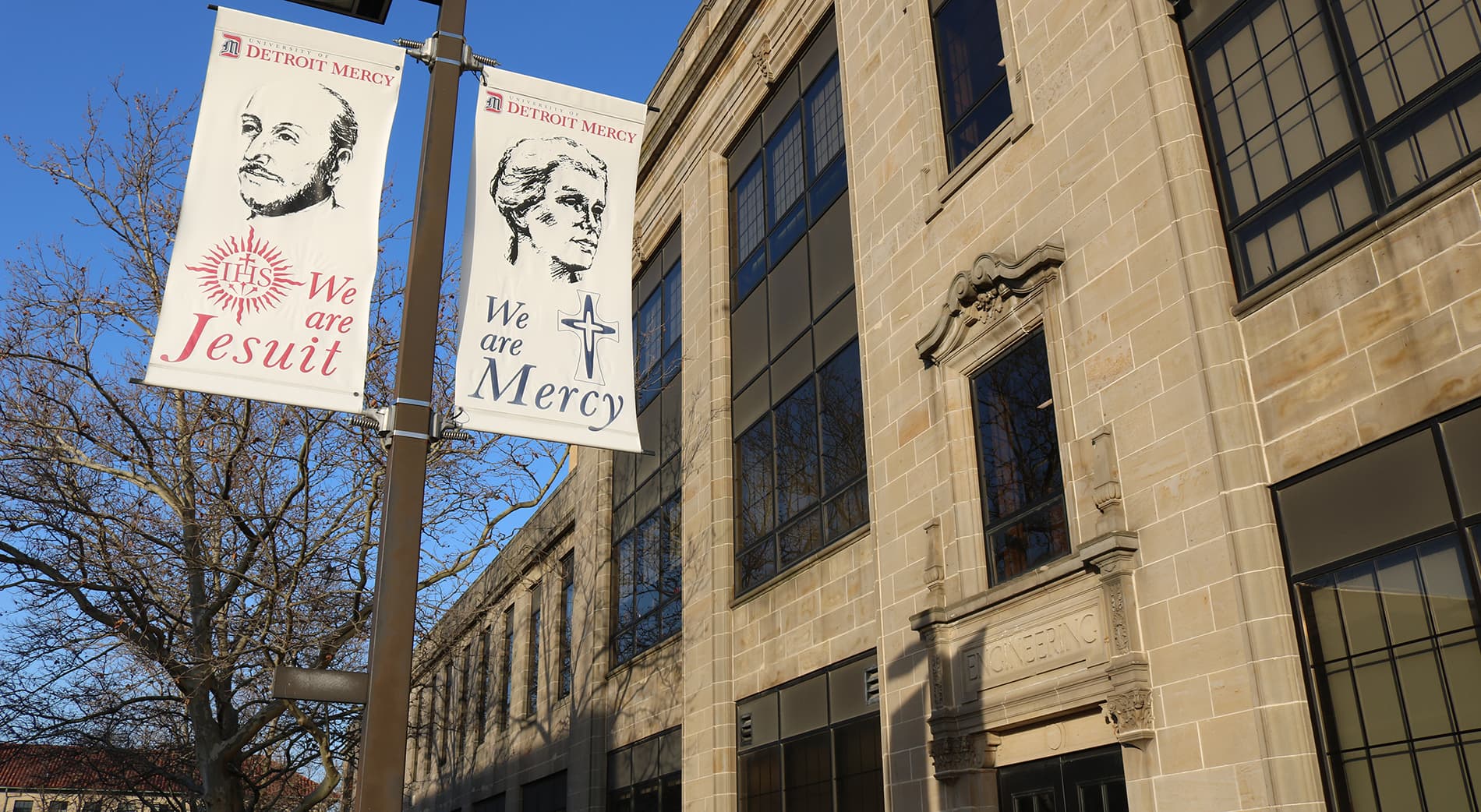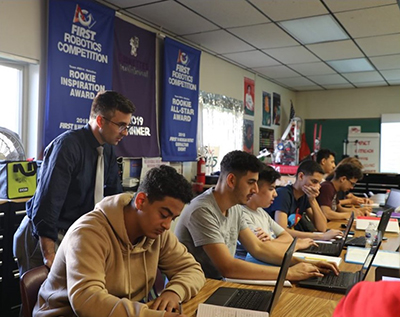$1-million NSF grant expands computer science education program to Detroit Public Schools

A $1-million National Science Foundation (NSF) grant will allow University of Detroit Mercy and Michigan State University (MSU) to improve access to high-quality computer science education to high school students in Detroit Public Schools Community District starting in fall 2022.
The collaborative grant will expand Detroit Mercy’s iDRAW (innovating Detroit’s Robotic Agile Workforce) program by implementing AP Computer Science Principles courses at several Detroit Public Schools. It also aims to develop high school teachers in the district to deliver high-quality computer science instruction.
The grant project, titled “Collaborative Research: Moving beyond access, increasing teacher knowledge to teach rigorous equity-focused high school computing,” was awarded as part of NSF’s Computer Science for All program.
“Locally and nationally, there is a great need for trained professionals to fill open positions in computer science and information technology," said Richard Hill, assistant dean for Research & External Initiatives at Detroit Mercy’s College of Engineering & Science. “These are rewarding, well-compensated careers for which many underserved students don't have access. This grant seeks to reduce existing barriers.”
 Detroit Mercy’s iDRAW program has worked with students for more than two years at Melvindale High School and Cesar Chavez Academy High School. Since then, Detroit Mercy has conferred 255 dual enrollment credits to students and has trained teachers in 10 Michigan school districts through the program’s teacher boot camps.
Detroit Mercy’s iDRAW program has worked with students for more than two years at Melvindale High School and Cesar Chavez Academy High School. Since then, Detroit Mercy has conferred 255 dual enrollment credits to students and has trained teachers in 10 Michigan school districts through the program’s teacher boot camps.
Students who take the new computer science course at Detroit Public Schools will learn a variety of important concepts, including coding, the operation of the internet, how information is stored and transmitted, as well as examining relationships between technology and society.
Curriculum is structured to be both an AP and dual enrollment course. This allows students to earn high school and college credit for their coursework, rather than having credit awarded based solely on test scores.
“The NSF grant helps us give rigorous, university-level access to a lot of students,” said Andrew Lapetina, an instructor with Detroit Mercy’s iDRAW program. “Anybody can hop on a website and learn some basic coding stuff, but is that necessarily going to provide a student with inspiration or mentoring or feedback that they need to feel like they can be really competent in that field? This is what iDRAW will allow us to do.”
That inspiration comes in a number of forms. People of color who are Detroit Mercy alumni and work in STEM fields often speak to students in the iDRAW program about their pathways and expertise. Students also get first-hand exposure to robotics, engineering and computer science elements during field trips to Detroit Mercy’s College of Engineering & Science.
iDRAW utilizes a unique teaching model in which a College of Engineering & Science instructor co-teaches with high school teachers throughout the academic year. Lapetina will co-teach with several teachers in the district as the program expands to Detroit Public Schools.
In addition to co-teaching, the grant includes teacher training to impact more students in Detroit Public Schools. MSU faculty Aman Yadav and Michael Lachney will evaluate the development of high school teachers and implement training on culturally responsive computing.
“The training will improve the teachers’ technical skills, while helping them to connect computing to the backgrounds and interests of their students,” said Hill, who is a principal investigator for the grant.
“We’re working on improving our curriculum to better serve students of color,” Lapetina added. “Traditionally, computer science curriculum and education has been reflective of people who are prominent in the field. People of color have not always been recognized for their contributions. We’re hoping to change that with this grant.”
Jocelyn Bennett-Garraway, director of School Counseling and associate professor of Counseling at Detroit Mercy, is a co-principal investigator for the grant and will evaluate the impact of iDRAW on the career development of high school students.
Hill says that the grant is based in Detroit Mercy’s Jesuit and Mercy mission because it “demonstrates the University’s commitment to be an engaged member of Detroit and to lend our expertise and resources to provide opportunities for underserved, local youth.”
Lapetina has worked with local students since iDRAW’s inception. He believes every high school in Detroit Public Schools should have a university-level computer science course for students, and is eager to see the impact of this three-year grant.
“If we’re able to expand this model and build teacher capacity across the entire district, the number of students who will end up being able to get four-year computer science degrees or four-year engineering degrees will improve dramatically,” Lapetina said. “And that’s really the goal: It’s student-focused and student-serving, that all students have access to a really rigorous computer science course, and that students are feeling competent in their ability to enter a four-year engineering program.”
Learn more about Detroit Mercy’s College of Engineering & Science and iDRAW program.
— By Ricky Lindsay. Follow Detroit Mercy on Facebook, Twitter and Instagram. Have a story idea? Let us know by submitting your idea.
